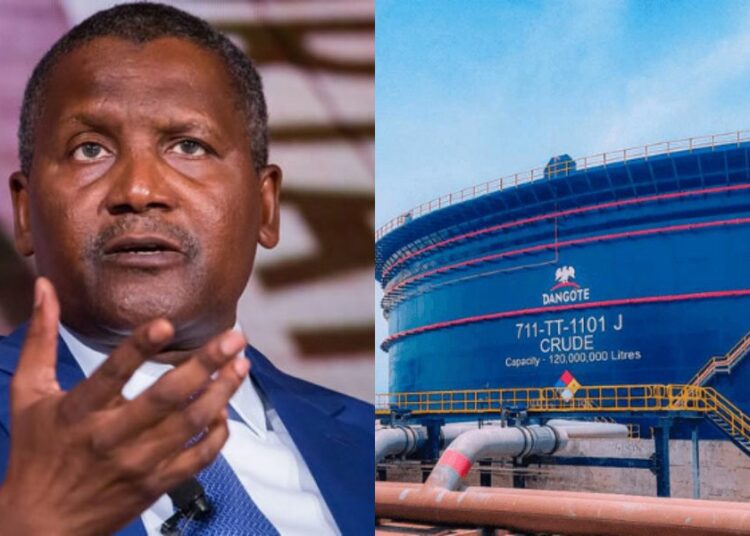The Dangote Refinery and Petrochemicals has named industry veteran David Bird as chief executive officer of its fuels and petrochemicals division, as the Nigerian conglomerate pushes to accelerate its expansion across Africa.
In a statement to S&P Global’s Platts, Bird, formerly the head of Oman’s Duqm refinery and instrumental in its development, assumed his new role effective July 2025. His appointment comes as Dangote’s $20 billion refinery complex in Lagos, the world’s largest single-train refinery, continues to ramp up production since its commissioning in January 2024.
Aliko Dangote, Africa’s richest man and founder of the Dangote Group, remains chairman of the refining business and CEO of the broader group, which also operates in the cement, fertiliser, and sugar industries.
Bird brings a strategic trading-led mindset, feedstock diversification expertise, and an emphasis on refinery efficiency, all of which will be crucial as the 650,000 barrels-per-day facility attempts to resolve design flaws and achieve full output.
Bird emphasised his aim to expand the company’s reach beyond Nigeria and to establish it as a leading refining force across Africa.
“My focus will be on maximising refinery output and operational efficiency while advancing the group’s footprint continent-wide,” Bird stated in a LinkedIn post shortly after assuming his role.
Bird’s appointment comes at a critical moment. While the Dangote refinery has made significant strides in disrupting Nigeria’s reliance on imported fuel, displacing major volumes of gasoline imports, the facility has been plagued by “unit upsets” and “design issues,” slowing down its ramp-up phase, according to S& S&P Global.
According to S&P Global’s Commodities at Sea data, Dangote was the country’s only operational refinery in July, exporting roughly 220,000 bpd of petroleum products as Nigerian National Petroleum Company (NNPC) facilities remained offline.
Notably, exports were led by jet fuel (45%) and gasoil (24%), with 30,000 bpd of residual fuel shipped due to limited RFCC processing capacity.
Bird’s leadership will also be crucial in navigating a challenging domestic and regulatory environment. While Nigeria’s petrol subsidy regime has officially been dismantled, market insiders report that unofficial distortions and “rent-seeking” behaviour persist. Aliko Dangote has previously criticised trade partners and substandard fuel imports for harming local refinery economics.
Adding to the complexity is a naira-based crude supply agreement with NNPC, which owns a 7.2 per cent stake in the refinery. Under this arrangement, the Dangote facility must supply fixed volumes of refined products to the local market, restricting its flexibility to adapt fully to global pricing dynamics and feedstock options.
Nonetheless, Dangote has begun processing a broader range of crude grades than initially planned. Originally designed around Nigerian crude, the facility has been forced to diversify due to inconsistent domestic supply. This aligns well with Bird’s experience at OQ8, where he managed a similarly complex crude slate at the Duqm refinery.
Bird’s tenure is expected to be watched closely by industry analysts. His record at OQ8, where he helped steer the Duqm refinery through its commissioning phase and into test operations in 2023, is seen as strong preparation for the challenges ahead at Dangote.
“David Bird’s operational experience and strategic acumen will be instrumental in stabilising the refinery’s performance and positioning it as a continental leader,” said one downstream oil analyst, speaking on condition of anonymity. “But he’ll have to move fast to address the mechanical and market pressures facing the plant.”
We’ve got the edge. Get real-time reports, breaking scoops, and exclusive angles delivered straight to your phone. Don’t settle for stale news. Join LEADERSHIP NEWS on WhatsApp for 24/7 updates →
Join Our WhatsApp Channel










